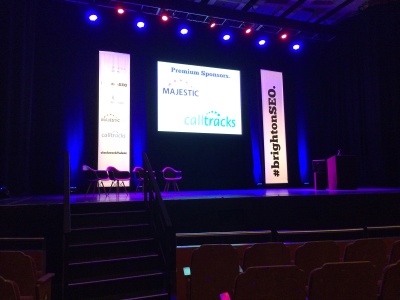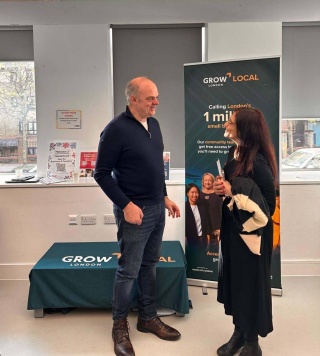BRIGHTONSEO 2014 – THE FUTURE OF SEO TODAY

I was recently fortunate enough to spend a day out of the office at BrightonSEO – the UK’s top SEO conference.
As an SEO agency owner I thought it would be good to share with you some of the key insights I gleaned from the excellent speakers and workshops I attended throughout the day. With SEO there is a constant source of new inspiration and I came away feeling excited about a host of new concepts and ideas.
So without further ado; here are my four biggest takeaways from BrightonSEO.
1. Act Global Think Local
One of the biggest oversights in modern SEO is to avoid international marketing and outreach entirely. After all – we are trying to get UK customers so why would we outreach to non-English speaking countries?
- 72% of the world’s internet users do not speak English.
- Yet nearly every country in the world has English speakers.
- English is STILL the language of business.
- Great content appeals to everyone – not just specific nationalities
The point here is that we should be trying to reach these people with our content and our marketing. Even if they are not our target market, even if they do not speak our language, we are missing an incredible number of opportunities if we fail to look at the international appeal of our highest quality content.
2. Don’t Read the News be the News
In every company there are a myriad of people who keep up to date with the latest industry trends and events. Every industry has a daily flow of important information. What companies need to capitalise on is that customers also want to know the news that affects them.
This creates a great opportunity for us to be part of the news; increasing our presence and increasing our brand authority.
In order to be successful in news you need to make sure;
- That you respond to new news items quickly.
- That your news is relevant to your target markets
- That your news creates an emotional connection with your reader
- That your news is attention grabbing
When it comes to news content the takeaway is that we need to have systems in place to effectively be part of the news if we are going to increase our reach.
3. Turning Negatives into Positives
Over the last year the SEO world was rocked by a huge swathe of algorithmic and manual penalties that forever changed the landscape of online marketing and link building.
Many sites that had performed healthily for years were penalised as Google sought to improve user experience by making it harder for sites to game the algorithm.
As a result we all now need to be more careful with how we create backlinks. However, we also need to monitor our existing backlinks regularly. Old links can suddenly become bad links and a ranking penalty is a headache we’d all like to avoid.
So what can we do?
- Perform a link audit to identify “bad” links.
- Take action to clear any potential threats by asking for the links to be made no-follow, removed or to use the Google Disavow tool.
- Set up a regular monitoring schedule to track link health.
Monitoring our links is incredibly important to maintain our site health. Thankfully there are a swathe of tools that can help to track our links available, e.g. Kerboo
4. Change is Inevitable
As a final thought I wanted to share some of the interesting concepts we are being exposed to from Google. Google is now the world’s largest data holder – they have more information on web-users than any government agency, company or international body.
Their business model is one that is increasingly moving towards data – whether it is targeted advertising, customer use or direct sales. They want to use as much information as possible to deliver better targeting, more personalisation and increase the user experience – whilst increasing their bottom line.
We’ve already seen Google Plus, Google maps, Google Glass, Google everything. What we are likely to continue to see is a move towards CONTEXT over content. Google will use its consumer data to target websites and customers.
As a result we need to be prepared for more changes – we need to become more fluid in our ability to market and we need a more integrated approach to marketing and SEO. We need to be targeting our audiences more carefully and using contextual data to shape our marketing and SEO programs.

